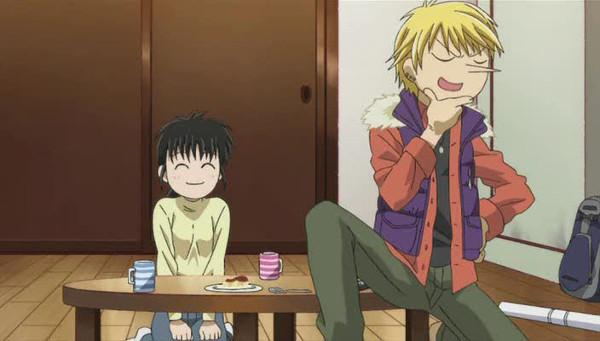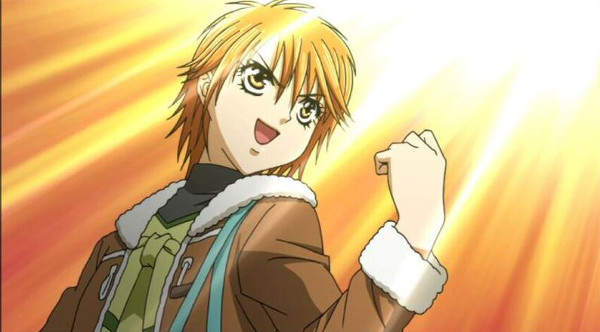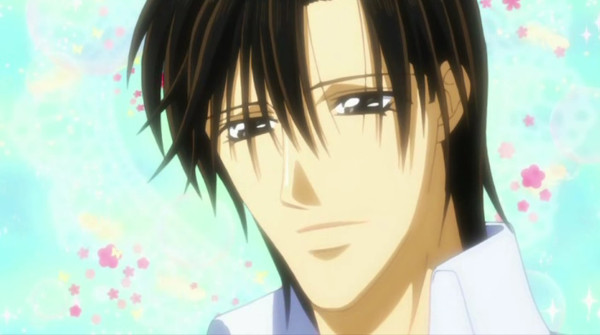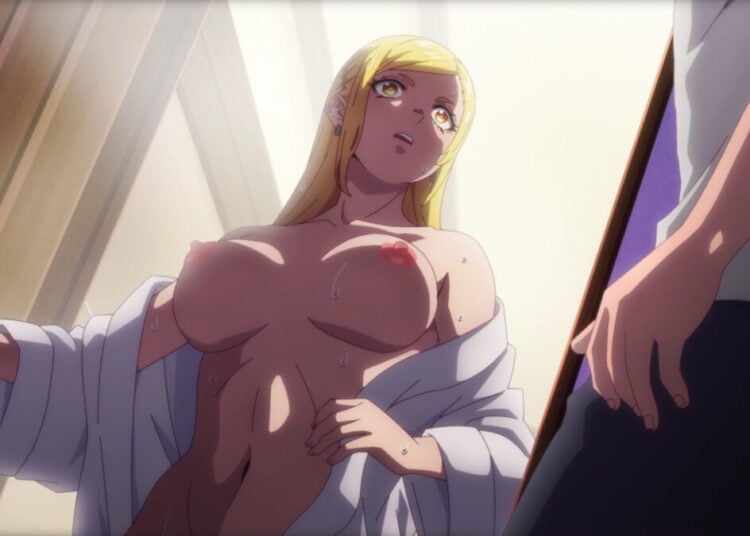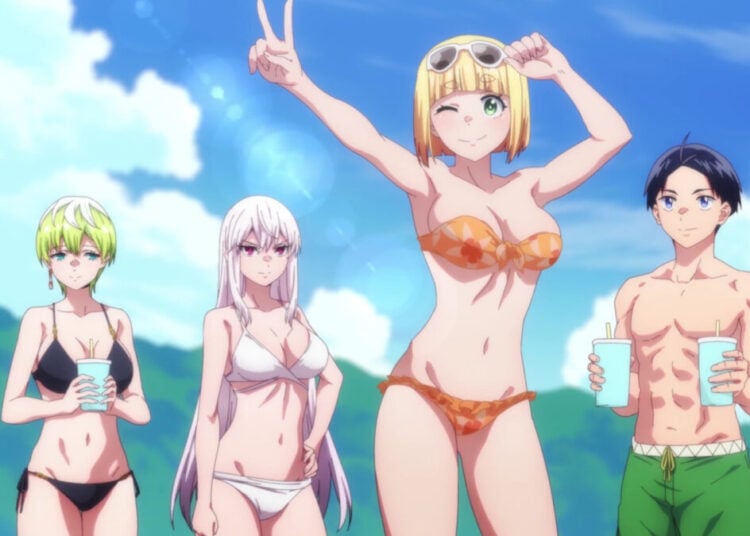For my first couple of entries into this column, I’ve recommended a sci-fi shounen and an almost entirely forgotten children’s series. I knew I wanted to write about a shoujo for my next entry, but which one? There are so many to choose from and many would be a perfect introduction to the genre. Then I looked at my DVD shelf and was reminded of one of the most anti-shoujo ever to grace our television screens; Skip Beat.
What’s Skip Beat About
Produced by Hal Film Maker, Skip Beat began airing in the latter half of 2008 and ran for 25 episodes. The main character is sixteen-year-old Kyoko Mogami, who has been in love with her childhood friend, Shotaro, since she was young. In fact, it’s not a stretch to say that her entire life centered on catering to his whims, needs, and overall happiness.
This continues after Shotaro leaves home to make it big in Tokyo as a pop idol. He asks Kyoko to come with him to help make his dreams a reality. Which she gladly does. After working multiple jobs and putting all her money towards keeping the two of them housed and fed, Shotaro reveals that he has absolutely no romantic feelings toward Kyoko. In fact, he’s been using her entirely as his maid. After learning the truth, she swears to get revenge by entering the entertainment business and becoming an even bigger star than him.
This might sound like an odd plot for a romantic comedy, but Skip Beat isn’t your average shoujo. Sure, it has many of the same trappings as your average entry in the genre. These are easy to pick out, such as the young heroine who must find her inner strength after landing in an unforeseen situation, the bitter rival character who ends up not being so terrible, or the potential love interest hinted to be a long-lost childhood friend. The list could go on and on, but that’s not what I want to focus on.
Skip Beat’s Story
Starting with the story and characters, this series is not afraid to turn the genre on its head and do something different. The first episode wastes zero time in setting up the overarching plot. Within moments we have established how hard Kyoko works and how much of a… ahem, not good person Shotaro is. This leads into the final moments of the premiere, which features Kyoko finally doing something for herself (i.e. going to the salon and changing her look entirely) and vowing her revenge against her ex.
Right away, Skip Beat feels like a lungful of fresh air by giving Kyoko reasonable motivation to pursue her new goal. Yes, it is still frustrating that she’s being driven forward by spite and revenge over a guy who isn’t worth it. That makes it all the sweeter to watch our main character grow and change over a couple of dozen episodes.
In the beginning, Kyoko doesn’t know how to get into the entertainment business. She flat-out states she doesn’t want to be an entertainer, but it’s the only way she can get revenge. As the story arcs progress and she interacts with more people within the industry, Kyoko slowly changes her worldview. Discovering a fire within her heart and a natural talent for acting, each new job she takes on becomes less about getting revenge. Instead, it becomes more about finding something new in her life that she can do just for herself and finding out what she loves, rather than what she was told to love by the adults in her life growing up.
Love These Characters
A big part of what helps Kyoko grow as a character is her interactions with the supporting characters. Early on, when Kyoko is still trying to get past the initial audition phase, the audience is introduced to an egotistical rival named Kanae Kotomine. Kanae is all too happy to put Kyoko down for her lack of training and cheap fashion. Before long, the two realize that they both need a best friend and find that support within each other.
Even more important than that is the character of Ren Tsuruga. Considered to be a dreamboat within the entertainment industry, Kyoko initially hates Ren because Sho considers him his rival. After meeting him in person, his refusal to acknowledge her as an actor constantly frustrates her simply because her motivation to become an actor is revenge.
As Skip Beat continues toward its concluding episode, Kyoko shows she’s more than capable of growth. Two of my favorite arcs in the series involve Kyoko showing her hidden talent for acting. In one, she lands a job in a music video alongside her ex and eventually proves she’s a force to be reckoned with by putting Shotaro on edge. Because of the excellent job she does she is then cast in a movie. Once again, she shows how much she truly understands her role. While I’m doing my best to avoid spoilers for these arcs (and the series), the growth that Kyoko undergoes within these episodes is enough to send chills down the audiences’ collective spines.
The Looks of Skip Beat
Having established the story and characters, how does Skip Beat look over a dozen years after its initial airing? Pleasing to the eye and the soul. While I did refer to Skip Beat as “anti-shoujo” earlier, it’s hard to deny that the artwork in this series is textbook shoujo. This includes bishounen characters with impossibly long limbs and chibi character designs used to highlight gags and punchlines. I don’t consider any of these points to be problems. However, I can understand if their use in each episode turns off anyone unfamiliar with these tropes.
Approachable?
For the most part, you don’t have to be an “expert” on Japanese pop culture or the entertainment industry to enjoy Skip Beat. While some concepts might seem bizarre to foreign fans, such as episodes that focus on one (or more) of the characters appearing on a variety or chat show, the series rarely does anything during these episodes that requires much explaining, even to novice fans.
Four Shiny Stars
Skip Beat is one of my favorite shoujo series of all time. That’s mostly because it breaks many barriers and rules that sometimes suffocate the genre. Despite feeling rushed in its second half, Skip Beat remains a classic series that reminds all people that you don’t need to give up your life for the sake of someone else and it’s alright to strike out to find out what makes you happy. Is this a textbook example of what most shoujo series are like? Absolutely not. Is Skip Beat a solid introduction to the powerful themes of self-acceptance and believing in yourself? You bet it is. If you’re curious about shoujo anime and want to dip your toes in the water, Skip Beat gets my novice seal of approval.
If you want to check it out, you can find the subtitled version of Skip Beat on Crunchyroll. The English dubbed version is on Blu-ray.
Let’s Chat
You made it to the end of this post! Thank you! As a token of our appreciation, enjoy an extra 5% off your next order when you use the code BLOG at checkout. Also, don’t forget to follow J-List on all our platforms!
- Twitter / X, where Peter posts anime booba for you
- Bluesky, where we post several times a day
- Facebook, where we used to share memes and discuss anime
- Discord, if you want to chat with other J-List customers of culture
Have you watched Skip Beat? Do you have another favorite shoujo title new fans should see? Tell us in the comments or on social media.
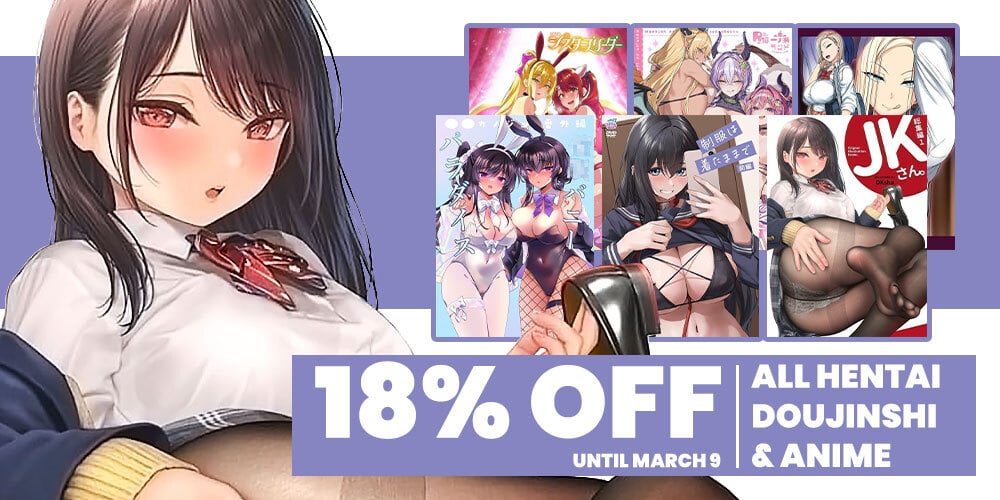
Great news! J-List has started a new sale for everyone, this time giving you 18% off on all “hentai” doujinshi, manga, anime and related items! Start browsing the sale items here!


